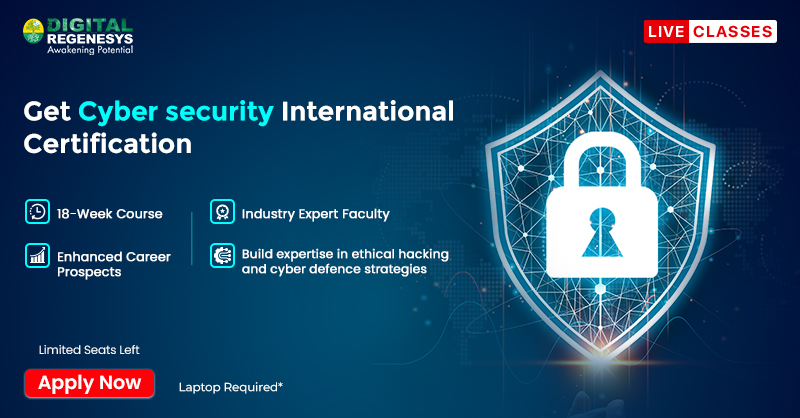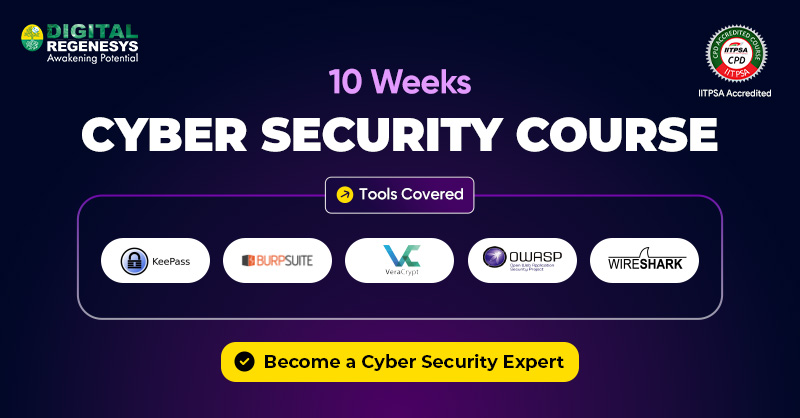How to Prepare for Cybersecurity Certifications with Online Training

Cybersecurity has become one of the fastest-growing and most in-demand fields in today’s digital economy. Organisations across industries are seeking certified professionals to protect their networks, systems, and data from increasingly sophisticated cyber threats. Preparing for cybersecurity certifications is crucial for anyone looking to build credibility, advance their career, or gain specialised knowledge.
In this article, we explore how online training can help you effectively prepare for cybersecurity certifications, develop practical skills, and position yourself for career growth in this competitive field.

Why Cybersecurity Certifications Matter
Cybersecurity certifications validate your skills, knowledge, and expertise to employers and peers. They demonstrate that you understand best practices, compliance requirements, and practical strategies for defending networks and systems.
Key reasons to pursue certifications include:
- Recognition of technical knowledge and skills
- Better job prospects and career advancement
- Higher earning potential
- Preparation for specialised cybersecurity roles
- Demonstrated commitment to continuous learning
Get insights on How Do I Start A Career In Cyber Security?
Benefits of Using Online Training for Certification Preparation
Online training has become a preferred method for preparing for cybersecurity certifications due to its flexibility, accessibility, and the variety of learning resources available. It allows learners to study at their own pace, revisit challenging topics, and access interactive modules, labs, and assessments.
Online platforms often guide industry experts, provide discussion forums, and simulate scenarios that replicate real-world cybersecurity challenges. This combination of self-paced learning and practical exposure helps learners gain confidence and mastery over exam topics.
Online training benefits include:
- Flexible learning schedules to balance work and study
- Interactive labs and simulations for hands-on practice
- Access to expert instructors and mentors
- Practice tests and exam-oriented study materials
- Opportunities for peer collaboration and networking
Explore details on Is Cyber Security a Good Career?

Steps to Prepare for Cybersecurity Certifications
Before starting any cybersecurity certification, it’s essential to understand the requirements, prerequisites, and learning outcomes clearly. Each certification has a specific focus, so knowing what skills and knowledge are expected will help you plan your study efficiently.
Reviewing official guidelines, exam formats, and recommended resources ensures you begin your preparation on the right track.
Once you’ve understood the certification requirements, the next step is to choose the right learning resources to effectively build your skills.
1. Understand the Certification Requirements
Before starting any preparation, it’s essential to research the certification thoroughly. Understand the exam objectives, domains, prerequisites, and scoring criteria. Knowing what to expect helps you create a focused study plan and ensures that you cover all required topics. Some certifications may require prior experience or knowledge in networking, security, or IT fundamentals.
Key preparation steps include:
- Reviewing the official exam guide and objectives
- Checking prerequisites or recommended experience
- Understanding exam format and duration
- Identifying core domains and topics
- Setting a target exam date
2. Create a Structured Study Plan
A structured study plan is crucial for managing time and effectively covering all exam topics. Allocate dedicated study hours each week and divide content into manageable sections. Include time for reading, video lessons, hands-on labs, and practice tests.
Consistency is key; regular study sessions help reinforce knowledge and reduce last-minute stress. Online platforms often provide suggested study timelines tailored to certification exams, which can serve as a practical framework.
Elements of an effective study plan include:
- Weekly study schedule with specific topics
- Inclusion of hands-on labs and exercises
- Scheduled practice tests and review sessions
- Revision periods for weak areas
- Buffer time before the exam for final preparation
3. Leverage Hands-On Labs and Simulations
Cybersecurity certifications often assess both practical skills and theoretical knowledge. Online training platforms offer virtual labs and simulations that replicate real-world scenarios, enabling learners to practice configuring firewalls, detecting threats, and responding to incidents.
These exercises help reinforce concepts, develop problem-solving abilities, and build confidence for the exam. Practical experience also improves your performance in interviews and on-the-job tasks after certification.
Key lab and simulation practices include:
- Configuring security systems and network devices
- Conducting penetration tests or vulnerability scans
- Practising incident response and threat mitigation
- Troubleshooting security issues in virtual environments
- Simulating real-world attack and defence scenarios
4. Take Practice Tests and Assess Progress
Practice tests are an essential component of certification preparation. They help learners familiarise themselves with exam formats, question types, and time management. Regularly assessing your progress helps identify knowledge gaps and areas that require further study.
Many online platforms offer mock exams with detailed explanations for each question, allowing learners to gain a deeper understanding of concepts and enhance their retention.
Effective use of practice tests includes:
- Timed simulations to replicate exam conditions
- Reviewing incorrect answers to understand mistakes
- Tracking performance across exam domains
- Focusing revision on weak areas
- Repeating tests until scoring consistently high
5. Join Study Groups and Discussion Forums
Collaborating with peers can enhance learning and provide additional support. Online forums and study groups enable learners to ask questions, share resources, and engage in discussions about challenging concepts.
Interacting with a community helps clarify doubts, gain multiple perspectives, and stay motivated throughout the preparation process. Experienced members often share valuable tips and insights that may not be available in course materials.
Benefits of study groups include:
- Clarifying doubts and concepts
- Sharing exam strategies and resources
- Gaining tips from experienced professionals
- Staying motivated and accountable
- Networking with future cybersecurity professionals
6. Maintain a Consistent Revision Schedule
Regular revision is crucial for retaining knowledge and reinforcing key concepts. Online courses often provide review modules, flashcards, and quizzes to facilitate effective revision. Revisiting previously studied material ensures better recall during the exam.
Focus on high-weighted exam domains and areas where you struggled during practice tests. Consistent revision increases confidence, reduces exam anxiety, and improves your overall performance.
Effective revision strategies include:
- Daily or weekly review sessions
- Flashcards for key concepts and definitions
- Revisiting challenging topics from practice tests
- Summarising notes and creating quick-reference guides
- Using online quizzes to track knowledge retention
Know more about Who Should Consider a Cybersecurity Course for Personal Knowledge.

Conclusion
Preparing for cybersecurity certifications through online training offers a flexible, effective, and interactive approach to mastering both technical and practical skills. By following a structured study plan, leveraging hands-on labs, practising with mock exams, and engaging with peer communities, learners can enhance their readiness and confidence for certification exams.
For professionals looking to accelerate their cybersecurity careers, the Digital Regenesys Cybersecurity Certificate Course offers comprehensive online training, exam-focused preparation, and practical exercises designed to help learners succeed in certification exams and advance in the field.
Visit Digital Regenesys today to explore our courses and start preparing for your certification with confidence.
Last Updated: 8 October 2025
